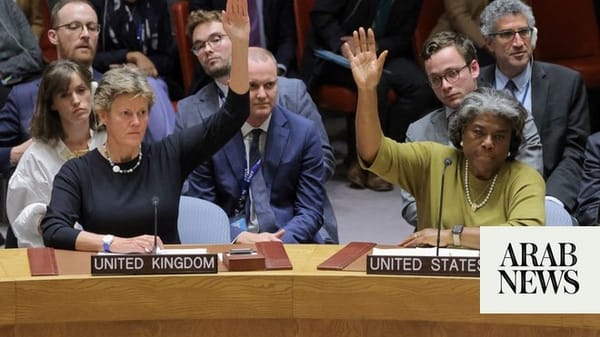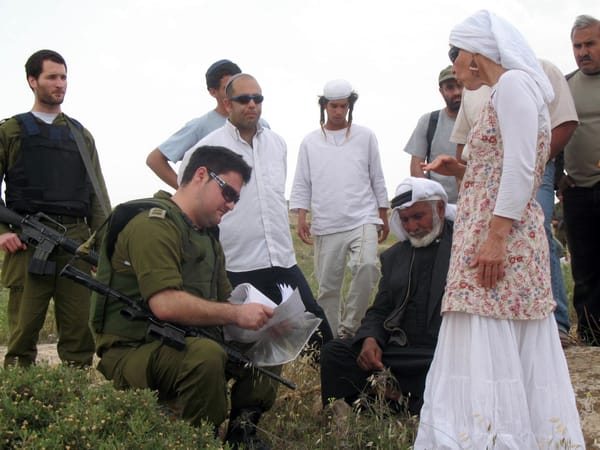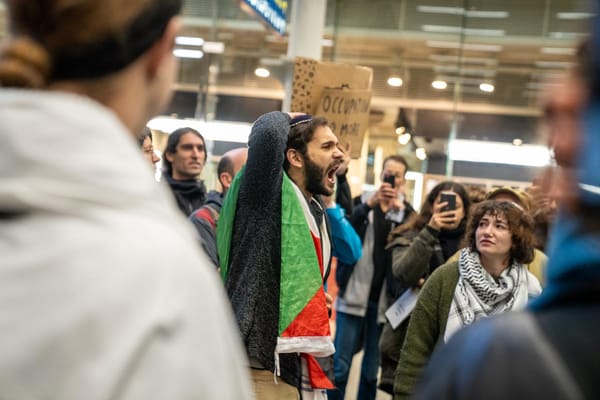A study in Palestinian dehumanisation
From Gaza to the UK, Palestinians’ lives have been rendered insignificant.

The scenes emerging from Gaza are heart-wrenching. At the time of writing, close to 4,000 Palestinians have been slaughtered in Israel’s pulverisation of the besieged enclave. At least 45 families have been entirely wiped off the civil registry. If you look away for just 15 minutes, it is likely another Palestinian child has been murdered. Parents are carrying the remains of their loved ones in plastic bags. To call it a massacre would be to downplay the immeasurable agony Palestinians are enduring.
Hospitals are at breaking point, serving as shelters as well as treatment centres. Morgue refrigerators are overflowing to the extent that ice-cream trucks are being used to store corpses. All of this is compounded by the shortage of fuel, water and electricity from the “complete siege” that Israel has imposed as an act of collective punishment. And with a ground invasion — and a mass expulsion — still very much on the cards, Israel’s atrocities in the strip look set to intensify.
To recognise and condemn Israel’s violence for the genocide it is should not, therefore, be difficult. Never mind the damning list of war crimes that Israel has already committed in response to Hamas’s 7 October attack; one merely needs to take Israeli officials at their word to understand their strategic objectives in Gaza.
“The State of Israel has no choice but to turn Gaza into a place that is temporarily or permanently impossible to live in,” reserve major general Giora Eiland wrote on a mainstream media platform. The chief of the Coordinator of Government Activities in the Territories (COGAT) declared that, in Gaza, there will only be destruction: “You wanted hell, you will get hell.” Ariel Kallner, a member of the Israeli parliament for Benjamin Netanyahu’s Likud party, called for a Nakba “that will overshadow the Nakba of [19]48”, referring to the expulsion of 750,000 Palestinians that accompanied the foundation of Israel.
Israeli political and military leaders have made unambiguously clear the genocide of Gazans that it is hellbent on delivering. While the mainstream international media generally brushes such language aside as mere rhetoric or sabre-rattling, those with a wide view of history have learned to take such provocations seriously. It is language that reflects an attitude the Palestinians have long known existed — one that sees them as subhuman and, ergo, expendable.
Only now, what was typically the quiet part is being said out loud, and with no filter. Take the odious words of Prime Minister Netanyahu during a speech to the Israeli Knesset this past Monday, which his office’s official Twitter account regurgitated and later deleted: “This is a struggle between the children of light and the children of darkness, between humanity and the law of the jungle.” And other prominent officials are singing from the same hymn sheet: Yoav Gallant, Israel’s defence minister, justified the tightening of the 17-year siege on the Gaza Strip to include all water, power and fuel with the declaration that “we are fighting human animals”.
Palestinians have long known that our lives hold little value in the eyes of our unrelenting torturers. What this latest dark and bloody chapter in our history has crystallised, however, is the extent to which our dehumanisation has an avalanche of willing international subscribers — including here in the UK.
Bottom of the hierarchy
British politicians have doubled down on their reflexive defence of Israel’s “right to defend itself”, with PM Rishi Sunak pledging “unqualified support” while the Labour Party cravenly equivocated — both in its stance towards the siege on Gaza and in holding Israel to account on failure to respect its own humanitarian evacuation orders. They did so in the face of the UN’s human rights chief calling out such actions as clear violations of international law, and the World Health Organization warning that Israel’s evacuation orders were tantamount to a death sentence.
In a contest between honouring human rights and greenlighting the unrepentant annihilation of the Palestinian people, only one school of thought should reign supreme in these policymakers’ calculations. But that would require humanising Palestinians. God forbid.
With the timeline of events in this intensifying war being drawn back no earlier than a couple of weeks, we must not forget that, before Hamas had breached even a millimetre of the Gaza border fence, this year was already the deadliest for Palestinians since 2005, with more than 200 individuals murdered by Israeli soldiers or settlers. Where was the global outrage then? What explanation can there be for the sudden uptick in interest in the region we see today, other than that we are dealing with non-Palestinian lives, which qualify as important?
In sharp contrast to the urgency and sense of horror being directed towards the current Israeli tragedy, Palestinian death continues to be greeted with lethargy and indifference. Such tendencies have instructed much of the mainstream media’s coverage of Israel’s ongoing blitz of Gaza.
When the Palestinian ambassador to the UK, Husam Zomlot, revealed on BBC Newsnight that he had just lost six family members in Israeli airstrikes on Gaza, the presenter barely flinched. Rather than receiving any compassion, Zomlot has instead been subjected throughout his media appearances in recent days to accusatory questions over whether he condones the killing of innocent Israeli civilians — civilians whose lives are, of course, more important.
The swiftness of that question, and the lack of contrition shown to another Palestinian whose family has been wiped out, was not accidental. It was a tacit admission that Palestinian lives have been rendered insignificant, collectively relegated to the bottom of the hierarchy of humanity.
And when the British media is not actively minimising the horrors that Gazans are facing, it is granting a platform to others to demean them. Israel’s ambassador to the UK, Tzipi Hotovely, for example, has used the media spotlight in recent days to shrug off suggestions of a humanitarian catastrophe in Gaza, despite the mountain of evidence. Indeed, it is far easier to dismiss the tragedies we are witnessing now — and in 1948, as Hotovely has been quick to do in the past — when the victims were never seen as fully human in the first place.
Hotovely revealed this double standard in her emotional reaction to a question about the devastating scenes in Gaza: “If you were a mother … what would you think if your children would have been executed in front of your eyes?” The cruel irony is that such a question could be asked of so many Palestinians — and not just in Palestine. Take the Palestinian-American mother of 6-year-old Wadea Al-Fayoume, for example, who watched her son be murdered last weekend at the hands of their landlord who had been radicalised by the prevailing media narrative. But her answer would not have mattered.
A losing battle
Calling out these distortions of language and narrative becomes exhausting when one feels that they are fighting a never-ending, losing battle. “It appears it was done by the other team,” President Biden remarked when assessing responsibility for the bombing of Gaza City’s al-Ahli Hospital earlier this week. While such events might seem like a trivial game to world leaders, in which you throw your support behind one or the other team and await the outcome, to Palestinians, it is a nightmare that never ends.
Why even bother explaining that we are not, in fact, primitive creatures with a singular and unwavering propensity for violence, if Israel’s president is only going to double down on the notion that civilians in Gaza bear full responsibility for Hamas’s action and can therefore be finished off? What hope is there if, even when a Palestinian in Israel’s Knesset tries to make the case that no children should be the victims of war, they are shouted down by members of the supposedly liberal opposition with the response that “the children in Gaza brought it upon themselves”?
And where does this all lead? To our fellow brothers getting stabbed 26 times for being Palestinian. To our solidarity marches being falsely characterised as having sinister intent. To our flag being criminalised. All to give greater justification for the genocide of our innocent women and children without a care for the endless heartbreak that will follow.
Eventually, the remorseless pounding of Gaza will stop, the camera lenses will shut, and the gaze of the world will no longer be planted on Gaza. But at that point the trauma and pain will have only just begun. The rebuilding will start. The attempt to kickstart lives without family members will commence. And Palestinians will look around for anything to engender hope. Perhaps some assistance, or at least some condemnation and retribution for the savagery that was inflicted on them. But nobody will be interested. Because they are Palestinian and therefore, ultimately, do not matter.▼
Hamza Ali Shah is a British-Palestinian political researcher and writer based in London.




